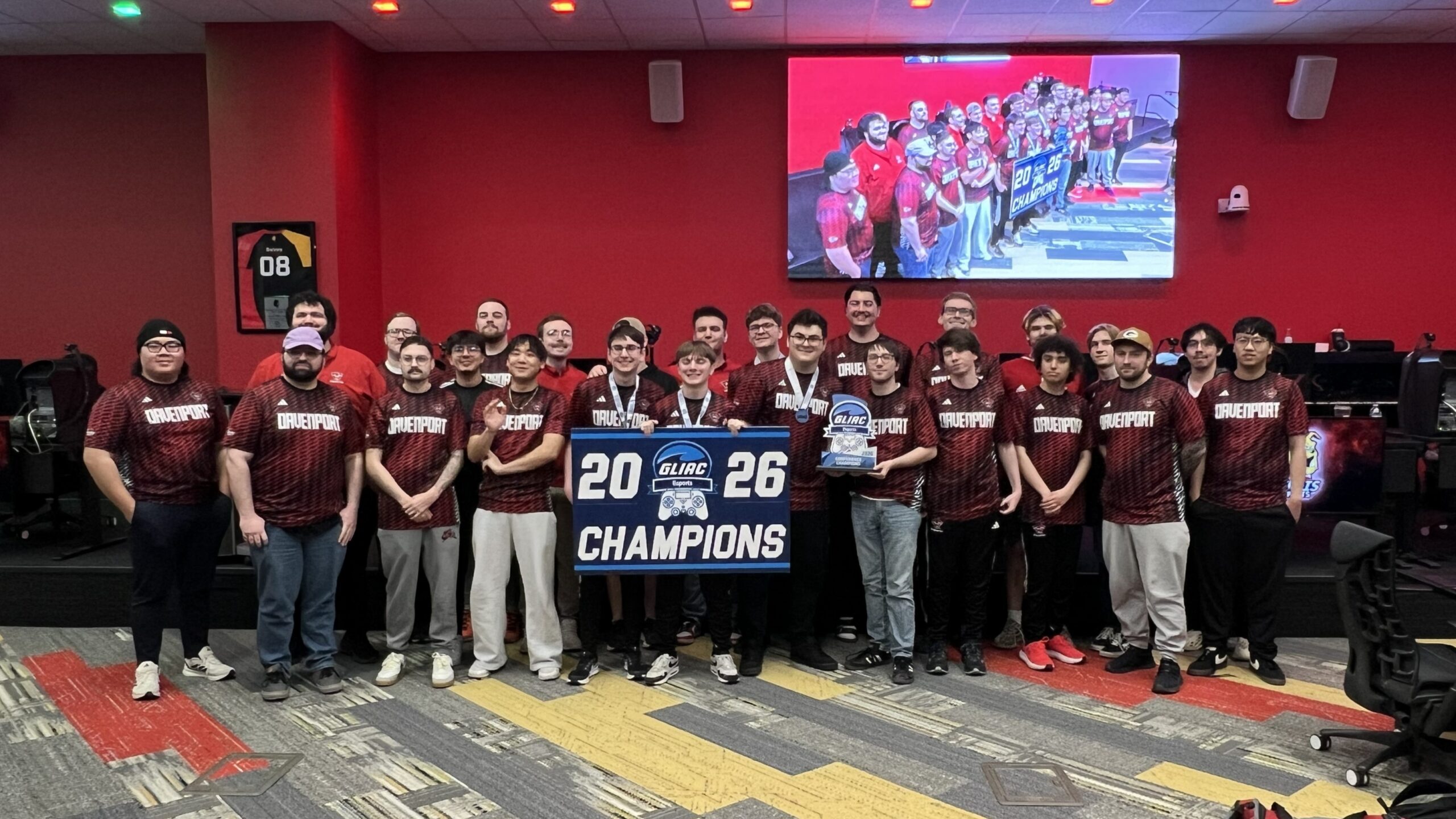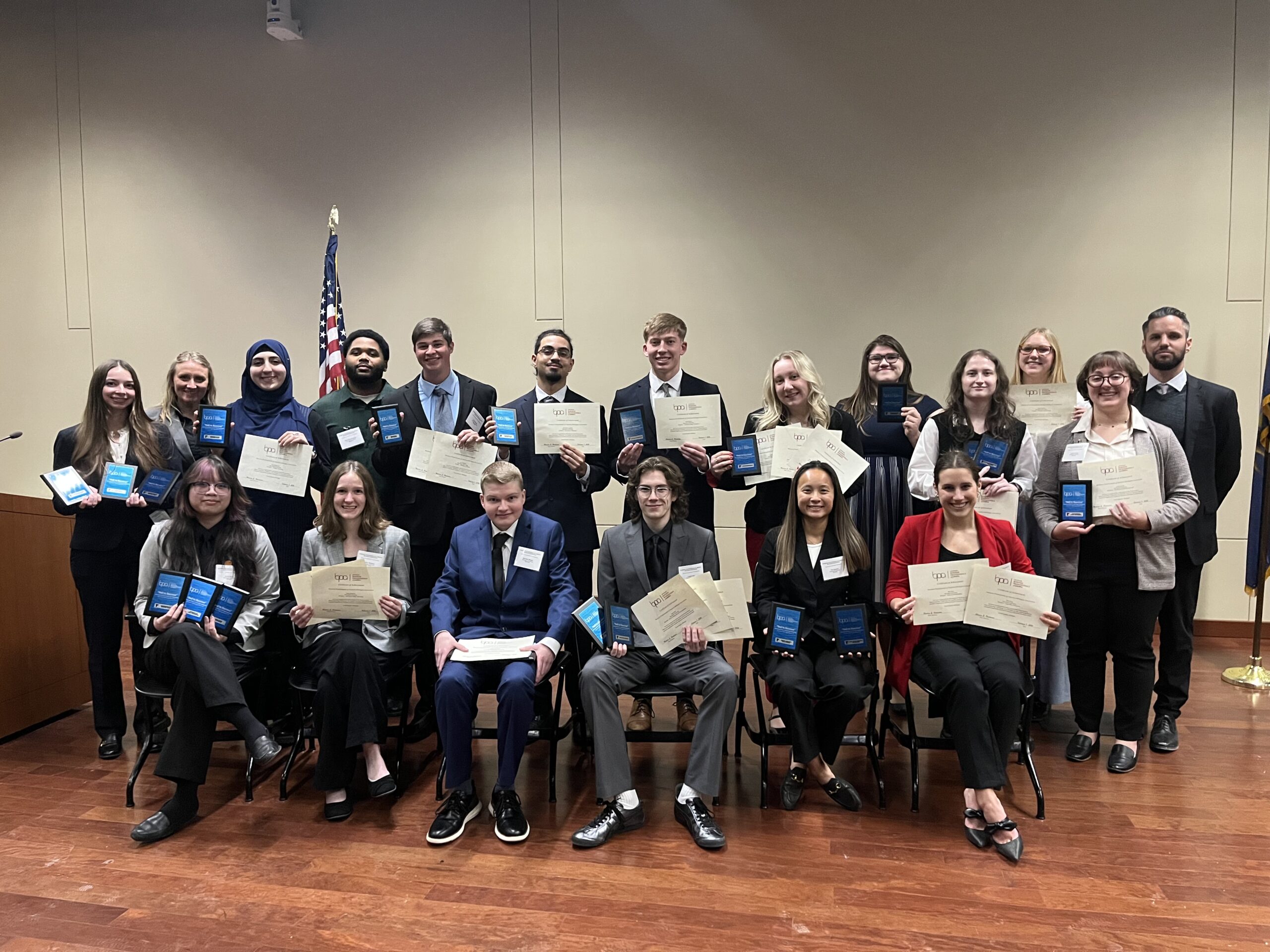The holiday marks an important time to get caught up with your loved ones. But it also marks an important chance to reconnect with your college student and make sure they are doing well – both socially and academically.
Here are a few helpful questions to ask to make sure they are on the right track and getting the support they need to be successful.
#1. Are you getting the emotional support you need?
Many college campuses have found that students are struggling more than ever with stress during their collegiate experience. Some universities have responded to this crisis by offering mental health programs, counseling and onsite resources.
For instance, Davenport University works with Pine Rest, a local mental health hospital and behavioral health provider, in Grand Rapids, Mich. to offer free, confidential and qualified professional counseling on their campus during the week. Many colleges also offer online resources, such as Wellconnect, which provides students with support on their own terms.
It’s also important to carefully listen to your child’s response. Listening and keying into concerns or subtle queues. Being an active listener will ensure you hear their concerns and are able to direct them to the right resources or support. The Student Center or Academic Advising at your child’s college can also point you to a number of free resources to offer additional support.
#2. How are your classes going and are you taking advantage of tutors?
Did you know that most colleges offer tutoring for students in-person, online and on a regular schedule? At most colleges, there are free tutors for every class or degree program that students can take advantage of on their own time.
What’s important is that students don’t wait until it’s too late to use these services. Instead, setting up a tutoring arrangement early can assure that students don’t have to dig themselves out of an academic hole.
#3. Are you meeting with and consulting your academic advisor?
Many students take a winding path to their final degree. In fact, research has found that 75% of students enter college without having final decisions made about their careers or majors. What’s important is that they work closely with their academic advisor to navigate that path as efficiently as possible. If your son or daughter hasn’t met with or talked to their counselor, this could be a big miss.
Advisors regularly help students:
- Monitor academic progress
- Provide helpful advice on working with faculty and administrators.
- Help navigate university policies and procedures
- Help select, change, add, or cancel classes
#4. What are you getting involved in at school?
Engaged students are more likely to achieve academic success, attend class regularly and stay in school. So your child’s engagement in school activities, social groups, clubs or sports may be a critical piece to their overall collegiate experience as well as their academic success. These groups often provide a source of friends, an outlet for stress and an opportunity to fully enjoy all that higher education offers young adults.
There are unlimited opportunities for students to get involved. If your child isn’t sure how or where to start, they should reach out to their student advisor or the Campus Life or Student Services Department. They will help connect your student with opportunities that align with their interests.
#5. Have you thought about starting an internship?
Internships are a clear pathway to a career. Internships provide a quick and painless “trial” period for students to learn whether they like their career choice, enjoy a company or want to consider a different path. The best part is that many employers often hire their interns.
An internship will also provide invaluable work experience that a student can include on their resume. After they graduate, prospective employers want to know that the student has at least some experience for the job they are seeking. An internship validates work experience and also generates a network of recommendations to tap into for future opportunities.
Encourage your student to reach out to their career services team to line up a potential internship. Many employers have arrangements with the university for this purpose.
You may also not want to overlook another key benefit of an internship – the opportunity to earn a little extra cash. Most employers offer paid internships.
Share This Story!
The holiday marks an important time to get caught up with your loved ones. But it also marks an important chance to reconnect with your college student and make sure they are doing well – both socially and academically.
Here are a few helpful questions to ask to make sure they are on the right track and getting the support they need to be successful.
#1. Are you getting the emotional support you need?
Many college campuses have found that students are struggling more than ever with stress during their collegiate experience. Some universities have responded to this crisis by offering mental health programs, counseling and onsite resources.
For instance, Davenport University works with Pine Rest, a local mental health hospital and behavioral health provider, in Grand Rapids, Mich. to offer free, confidential and qualified professional counseling on their campus during the week. Many colleges also offer online resources, such as Wellconnect, which provides students with support on their own terms.
It’s also important to carefully listen to your child’s response. Listening and keying into concerns or subtle queues. Being an active listener will ensure you hear their concerns and are able to direct them to the right resources or support. The Student Center or Academic Advising at your child’s college can also point you to a number of free resources to offer additional support.
#2. How are your classes going and are you taking advantage of tutors?
Did you know that most colleges offer tutoring for students in-person, online and on a regular schedule? At most colleges, there are free tutors for every class or degree program that students can take advantage of on their own time.
What’s important is that students don’t wait until it’s too late to use these services. Instead, setting up a tutoring arrangement early can assure that students don’t have to dig themselves out of an academic hole.
#3. Are you meeting with and consulting your academic advisor?
Many students take a winding path to their final degree. In fact, research has found that 75% of students enter college without having final decisions made about their careers or majors. What’s important is that they work closely with their academic advisor to navigate that path as efficiently as possible. If your son or daughter hasn’t met with or talked to their counselor, this could be a big miss.
Advisors regularly help students:
- Monitor academic progress
- Provide helpful advice on working with faculty and administrators.
- Help navigate university policies and procedures
- Help select, change, add, or cancel classes
#4. What are you getting involved in at school?
Engaged students are more likely to achieve academic success, attend class regularly and stay in school. So your child’s engagement in school activities, social groups, clubs or sports may be a critical piece to their overall collegiate experience as well as their academic success. These groups often provide a source of friends, an outlet for stress and an opportunity to fully enjoy all that higher education offers young adults.
There are unlimited opportunities for students to get involved. If your child isn’t sure how or where to start, they should reach out to their student advisor or the Campus Life or Student Services Department. They will help connect your student with opportunities that align with their interests.
#5. Have you thought about starting an internship?
Internships are a clear pathway to a career. Internships provide a quick and painless “trial” period for students to learn whether they like their career choice, enjoy a company or want to consider a different path. The best part is that many employers often hire their interns.
An internship will also provide invaluable work experience that a student can include on their resume. After they graduate, prospective employers want to know that the student has at least some experience for the job they are seeking. An internship validates work experience and also generates a network of recommendations to tap into for future opportunities.
Encourage your student to reach out to their career services team to line up a potential internship. Many employers have arrangements with the university for this purpose.
You may also not want to overlook another key benefit of an internship – the opportunity to earn a little extra cash. Most employers offer paid internships.
Share This Story!
Stay connected!
Get the latest Davenpost News delivered to your inbox!
Related Stories
Davenport University has been awarded a $10 million grant by the U.S. Department of Education through the highly competitive Gaining [...]
Davenport University will welcome Dede Thompson Bartlett as its third Woodrow Wilson Visiting Fellow March 12 to 16. She will [...]
Davenport University’s Alternative Spring Break (ASB) Program is sending 18 students to New Orleans February 25 - March 3 to [...]
Latest Stories
Over a high-stakes weekend at Ferris State University on February 14th and 15th, Davenport University Esports solidified its status as [...]
Davenport University has announced a new master's degree in nursing that prepares nurses for advanced careers as clinical nurse leaders. [...]
Davenport University’s Business Professionals of America (BPA) students once again took top honors at the recent Postsecondary State Leadership Conference, [...]








